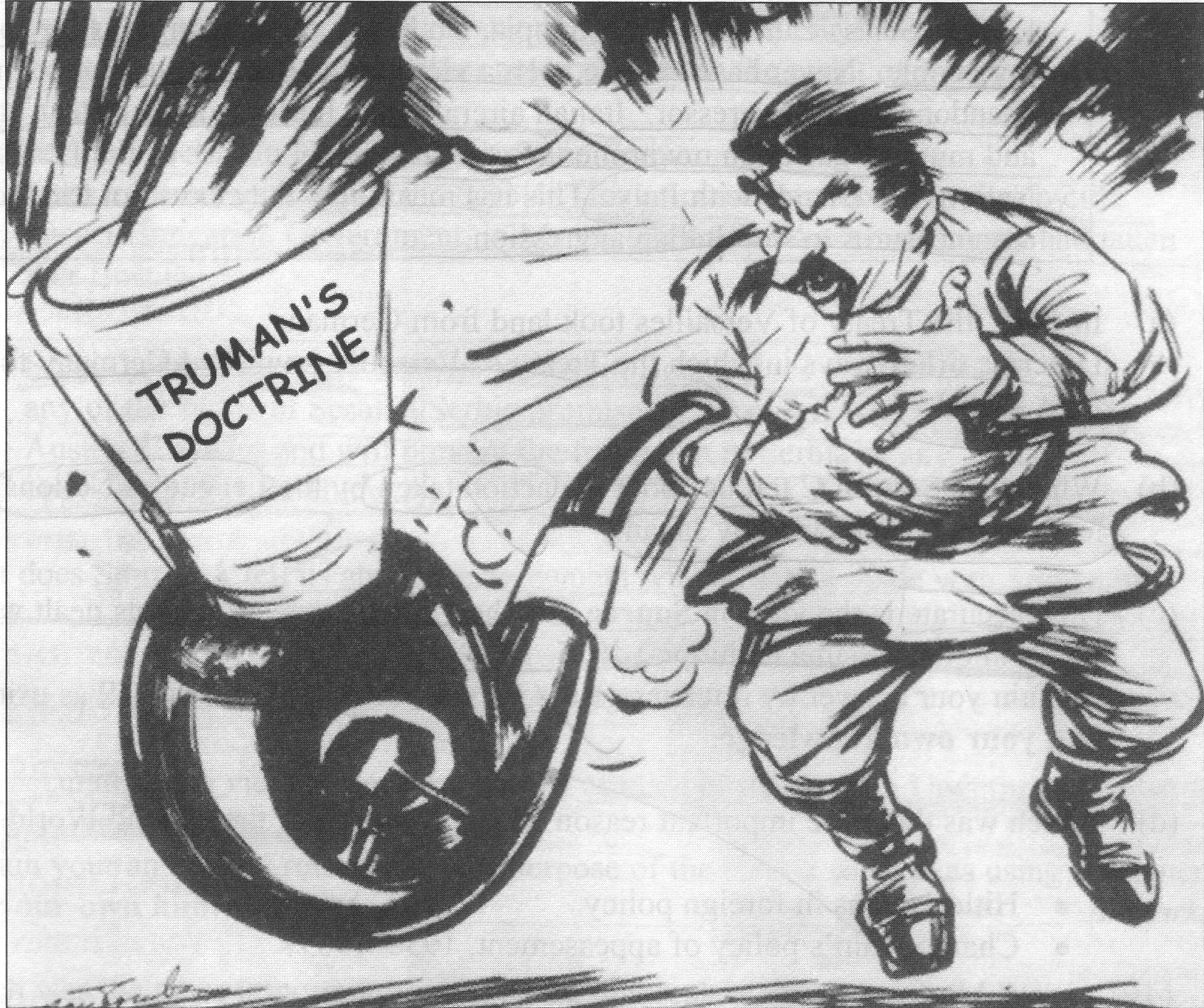In 1947, two important events occured:
firstly, President Truman warned the American Congress that it was America's
job to contain Communism - this became known as the Truman Doctrine -
and secondly, US General George Marshall came up with a plan to help
Europe recover from the war using American money - this became known
as the Marshall Plan.


Truman
Doctrine
- By
1947, Greece was one of the few countries in Eastern Europe that hadn'tturned communist. The
Communist rebels in Greece were prevented from taking over by the British
Army.
- America
was becoming increasingly
alarmed by the growth of Soviet power.
- So,
when the British told Truman they could no longer afford to keep their
soldiers in Greece, Truman stepped in to take over.
- In
March 1947, he told the American Congress it was America's job to stop
communism growing any stronger.
- This
was called the Truman Doctrine.
- It
is often said that Truman advocated containment (stopping the Soviet getting any more
powerful), but Truman did not use this word and many Americans spoke
of "rolling back" communism.
Marshall Plan
- In
June 1947, General George Marshall made a visit to Europe to see what was
needed.
- He
came away thinking Europe was so poor that the whole of Europe was about
to turn Communist.
- Marshall
and Truman asked Congress for $17 billion to fund the European Recovery
Programme nicknamed the
Marshall Plan - to get the economy of Europe going
again.
- Congress
at first hesitated, but agreed in March 1948 when Czechoslovakia turned
Communist.
- The
aid was given in the form of food, grants to buy equipment, improvements
to transport systems, and everything "from medicine to
mules".
- Most
(70 per cent) of the money was used to buy commodities from US suppliers:
$3.5 billion was spent on raw materials; $3.2 billion on food, feed and
fertiliser; $1.9 billion on machinery and vehicles; and $1.6 billion on
fuel.
Stalin forbade the
Cominform countries to apply for Marshall Aid.

